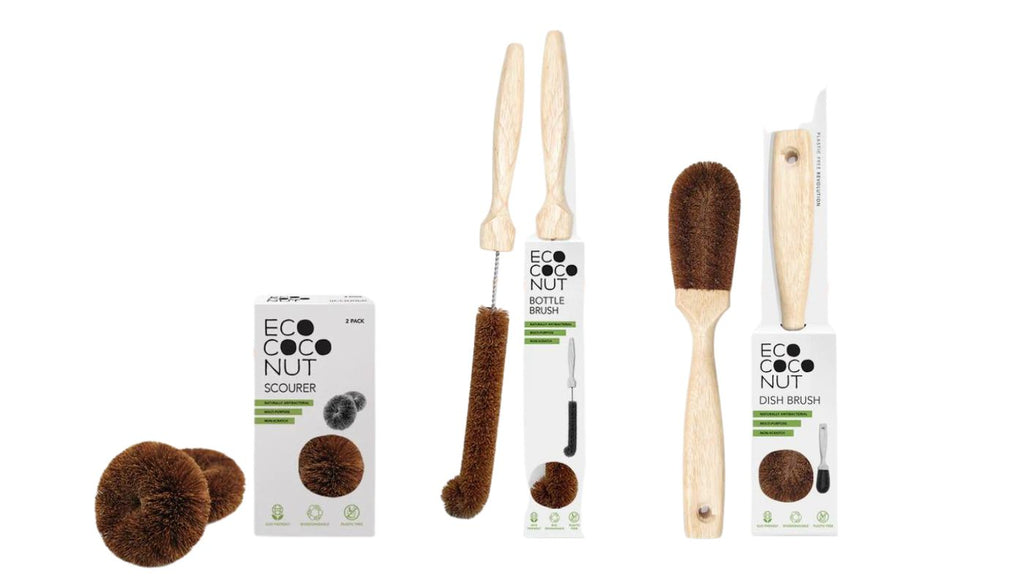
Plastic Free July: How to Work Towards a Plastic Free Kitchen
Do you look at the rubbish bin in your kitchen and see plastic waste overflowing? It's plastic free July, and we've got heaps of great tips on how you can get yourself working towards a plastic free kitchen. With a bit of forward planning, you can drastically reduce the amount of single use plastic that you use in your household. Here's how!
Plastic Free Kitchen
Food storage
- Only use washable or biodegradable containers and jars.
- Save jam jars and use them for storage.
- Eliminate the need for cling film by committing to containers with lids. And yes, I know that you can never find the lids when you need them. So have a look at something like Agreena or a beeswax wrap to use in place of cling film when you can't find the lid!
Food Storage and Reusable Wraps

Apiwraps Reusable Beeswax Wraps
Cleaning
- Choose your dish cleaning equipment thoughtfully and buy natural bristle bottle brushes and washable dishcloths.
- Choose Biobags for the rubbish bins.
- Get a maxi compost bin for the green scraps. Get a worm farm for scraps, too.
Plastic free brushes and dishcloths
 |
Ecococonut plastic free cleaning brushes
Cooking and Food
- Choose wooden cooking utensils over plastic ones.
- Avoid using non stick cooking ware. The stuff that makes cooking ware 'non stick' is actually plastic.
- Try shifting to bamboo cutting boards. Aside from the fact that it's more eco friendly, it is also beautiful and can function as a serving board as well.
- Choose reusable silicone mats like Agreena instead of baking paper or cupcake paper.

Agreena 3 in 1 reusable wraps
Shopping
- Never use plastic bags. Instead, always have a stash of reusable carry bags on hand for toting your produce. There are some lovely ones from Apple Green Duck or Onya Reusable Bags. Ever Eco also has some great options. Or you can simply grab a cardboard box.
- Only buy fresh food loose or packed in cardboard.
- Avoid buying processed food. Almost always processed food comes in a single use plastic packaging.
- Try to choose products in glass instead of plastic or cardboard. For example, I choose my pasta based on the fact that it's in a cardboard box, not a plastic one. And I'll choose jars of tomatoes instead of tins (tins are lined with plastic). My local farmer's market even sells milk in glass bottles (with the cream on top - delicious!).
- Speaking of the local farmer's market, when it comes to produce, shopping at your local farmer's market is the best option. Simply put, less transportation is less packaging. I stopped shopping at the supermarket long ago, and it's heaps easier to go plastic free when you shop in bulk or at the market.
Want to see more? Check out our range of plastic free products here.
Image credits: main image: Deposit Photos; Apiwraps, Agreena.





